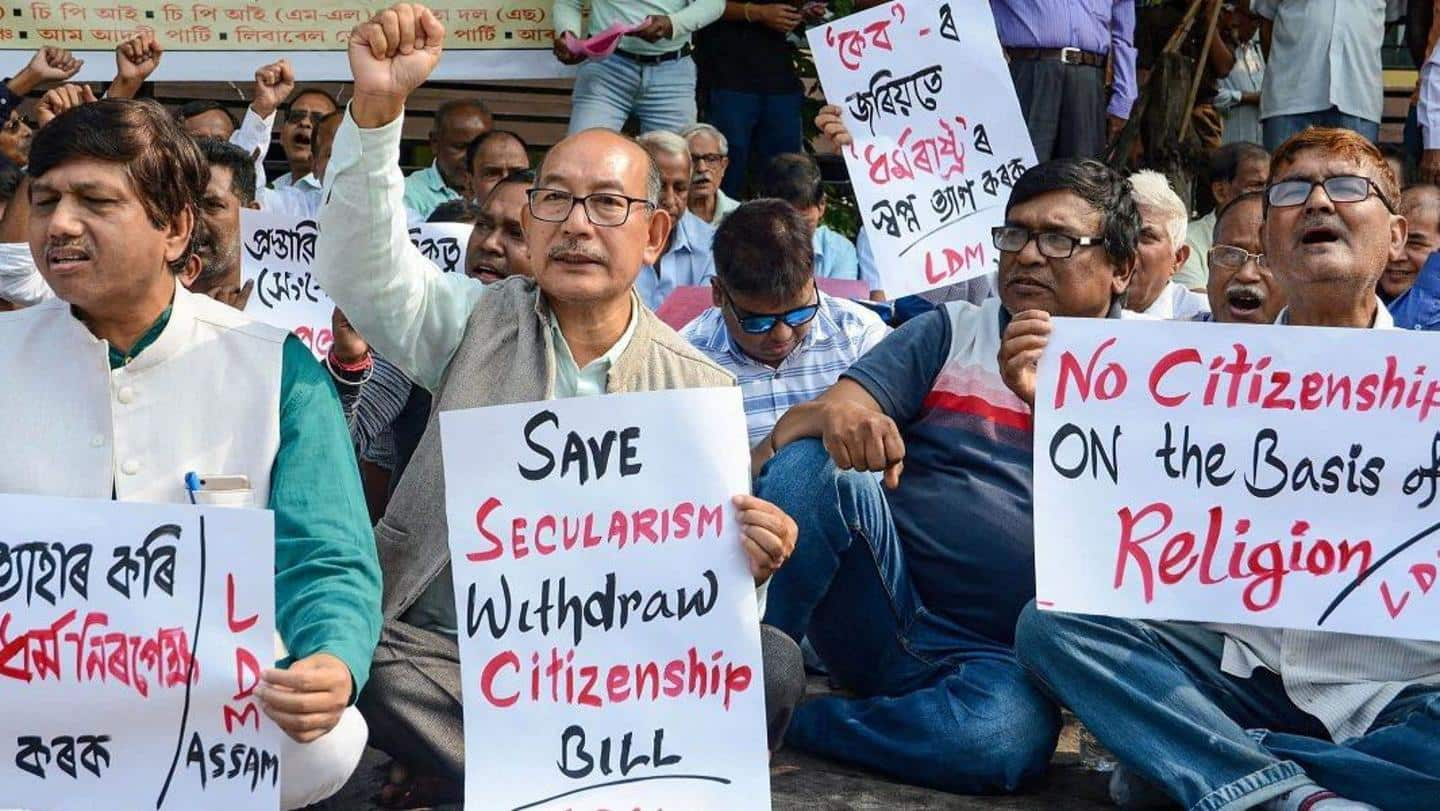
Centre invites CAA-like citizenship applications in 5 states
What's the story
The Indian government on Friday issued a notification, allowing refugees from three neighboring countries residing in specified districts of five states to apply for an Indian citizenship.
The fresh notification is starkly similar to the controversial Citizenship Amendment Act (CAA) - as it lists the eligible religious minorities as Hindus, Sikhs, Buddhists, Jains, Parsis, and Christians from Pakistan, Afghanistan, and Bangladesh.
Details
Applications will have to be submitted online
This order has been issued under the Citizenship Act, 1955 and the Citizenship Rules of 2009, not under the CAA, 2019 - whose rules have not been framed yet, The Indian Express reported citing sources in the Union Home Ministry.
Applications in this regard will have to be submitted online to the authorities of the concerned districts, reports say.
Information
Which all districts have been named?
People eligible for this scheme are such refugees who are currently residing in the districts of Morbi, Rajkot, Patan, and Vadodara (Gujarat), Durg and Balodabazar (Chhattisgarh), Jalore, Udaipur, Pali, Barmer, and Sirohi (Rajasthan), Faridabad in Haryana, and Jalandhar in Punjab.
Notification
What did the government say in its notification?
"The central government hereby directs that powers exercisable by it for registration as citizen of India under Section 5, or for grant of certificate of naturalisation under Section 6 of the Citizenship Act 1955 in respect of any person belonging to minority community in Afghanistan, Bangladesh and Pakistan," the government's notification read.
It further named the six eligible religious minorities.
Procedure
How will citizenship be granted?
The Centre says the verification of these applications will be done by the District Collector or the State Home Secretary at the district-level and the state level, depending on the case.
They will then make their reports available to the central government online.
"On being satisfied with the suitability of the applicant, (the official) grants him the citizenship of India by registration or naturalisation."
Information
A similar notification was issued in 2018 as well
In 2018 too, the Indian government had issued a similar notification for refugees of the said minority communities residing in certain districts of Chhattisgarh, Madhya Pradesh, Gujarat, Rajasthan, Uttar Pradesh, and Delhi.
CAA
CAA and the ensuing mass protests
The Indian Parliament passed the CAA in 2019 amid widespread protests against the contentious law across the country.
Critics of the government and Opposition parties slammed the law for making religion a basis for citizenship and for excluding Muslims - who form India's largest religious minority - from the government's list of "persecuted minorities."
The protests even led to Delhi's deadliest riots in decades.
Quote
Why has CAA not been implemented yet?
The nationwide implementation of the CAA still remains pending as the government has not framed the necessary rules as yet. "The rules are essential for implementation of the Act," government sources have told The Indian Express.